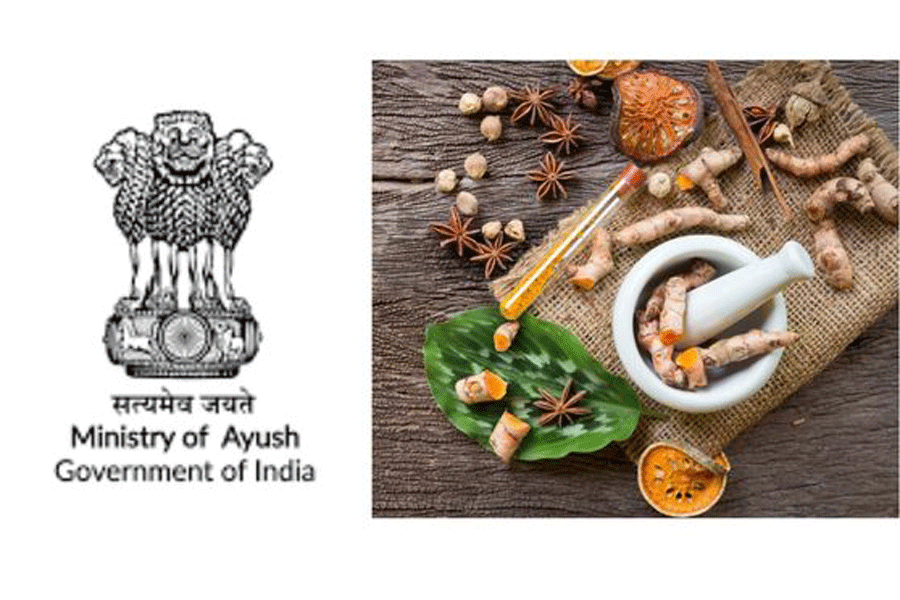The Centre is set to revoke a rule it had itself introduced five years ago to curb misleading advertisements for traditional medicines even though India's top drug administrator had cautioned that it would be unethical to drop the rule without alternative provisions.
A technical advisory board to the Union ministry for ayurveda, yoga, unani, siddha and homeopathy (Ayush) has taken a "conscious decision" to omit Rule 170 in line with the government's policy to "promote ease of doing business" the Ayush ministry has said.
The Centre had introduced Rule 170 into the Drugs and Cosmetics Act 1945 to control inappropriate and misleading advertisements for ayurveda, unani and siddha medicines. The rule required Ayush producers to seek a unique identification number for each advertisement from regulatory authorities, facilitating prior scrutiny of its contents by authorities.
But the Ayush ministry's technical advisory board in May this year recommended dropping the rule after sections of the Ayush industry opposed it in court and after the Centre told Delhi High Court that it had asked the board to reconsider the rule.
"The decision to revoke Rule 170 prioritises interests of the Ayush industry over the interests of citizens," said K.V. Babu, an ophthalmologist in Kannur, Kerala, who has been campaigning — through correspondence with the ministry — for tighter rules against misleading advertisements.
Babu and other doctors say they are worried about the health consequences of misleading advertisements on patients.
"Misleading ads can have huge impacts on patients — we see this routinely," said Ambrish Mithal, head of endocrinology at Max Healthcare in New Delhi. Patients with chronic conditions such as diabetes that don't cause immediate symptoms are among those likely to be influenced by such advertisements, he said.
Mithal said endocrinologists often encounter diabetes patients who stopped their prescribed medicines and turned to traditional medicines only to return months later in worse states, sometimes even with kidney complications resulting from uncontrolled diabetes.
The decision to revoke Rule 170, Babu said, has disregarded words of caution even from the nation's top drug regulator.
V.G. Somani, who was then the Drugs Controller General of India, the head of the country's apex regulatory authority for medicines, had expressed caution about dropping Rule 170 before alternative provisions were in place.
Somani had told a meeting of the technical advisory board on June 27, 2022, that "it is not ethical to omit the existing rule in anticipation of its inclusion" in proposed amendments to the Drugs and Magic Remedies (DMR) Act 1954, another law to regulate advertisements.
Minutes of the meeting show that Somani had said Rule 170 may be omitted once those provisions were in place.
The Union health ministry had in February 2020 proposed amendments to the DMR Act to expand the list of health disorders for which advertisements of medicines were to be prohibited and enhance punishments for violations.
"It is now more than three years since the proposal to amend the DMR Act — we have neither seen those amendments emerge, yet they are keen to revoke Rule 170," Babu said.
The Ayush ministry has said that the elimination of Rule 170 "will not in any way compromise with the set goal of curbing misleading advertisements" as "existing other mechanisms can check the same".
The ministry, in a response sent to Babu explaining the decision to revoke Rule 170, has also said the Ayush ministry has strengthened its pharmacovigilance programme that is "proactively reporting" all such instances of misleading advertisements.
The Ayush ministry had informed Parliament in March 2022 that pharmacovigilance centres for Ayush drugs had reported 18,812 "objectionable advertisements" from 2018 to December 2021. The department of consumer affairs had registered 1,416 misleading advertisements of Ayush products from April 2014 to July 2021.











